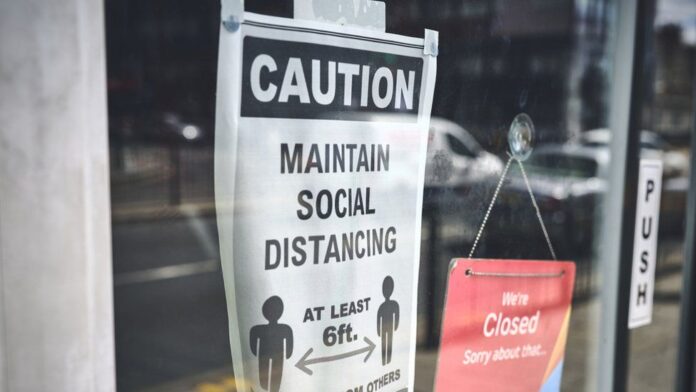
A record number of small firms could close in the next 12 months, says the Federation of Small Businesses.
Without further government help to cope with the effects of the pandemic, more than a quarter of a million businesses could be lost, it said.
The FSB said it had put forward ideas to help some of those firms, which it hoped ministers would adopt.
Its proposed support scheme would aim to help many self-employed workers currently excluded from aid.
The FSB based its prediction on a survey of 1,400 small firms, 5% of which said they expected to close this year.
If those figures were replicated across the country, some 250,000 of the UK’s 5.9 million small firms could disappear, it said.
FSB national chairman Mike Cherry said: “The development of business support measures has not kept pace with intensifying restrictions.
“As a result, we risk losing hundreds of thousands of great, ultimately viable small businesses this year, at huge cost to local communities and individual livelihoods.”
Mr Cherry said the government had met the latest national lockdown “with a whimper” and called for help that went beyond the retail, leisure and hospitality businesses.
“Company directors, the newly self-employed, those in supply chains and those without commercial premises are still being left out in the cold,” he added.
Among other groups, the FSB is concerned that directors of small companies, who pay themselves in dividends rather than drawing a salary, are not receiving any help from the government.
The FSB said somewhere between 700,000 and 1.1 million people fell into this category.
If adopted by ministers, the FSB’s proposed Directors Income Support Scheme would pay them grants of up to £7,500 to cover three months of lost trading profits. It would be limited to those who earn less than £50,000 a year.
The FSB said it had submitted its proposals to the Treasury and was expecting a decision this month.
The Treasury said nothing was planned at present, but added: “Our support schemes are designed to get help to those who need it most whilst protecting the taxpayer from fraud, but of course we keep everything under review and are always open to further ideas.”
Source: BBC

